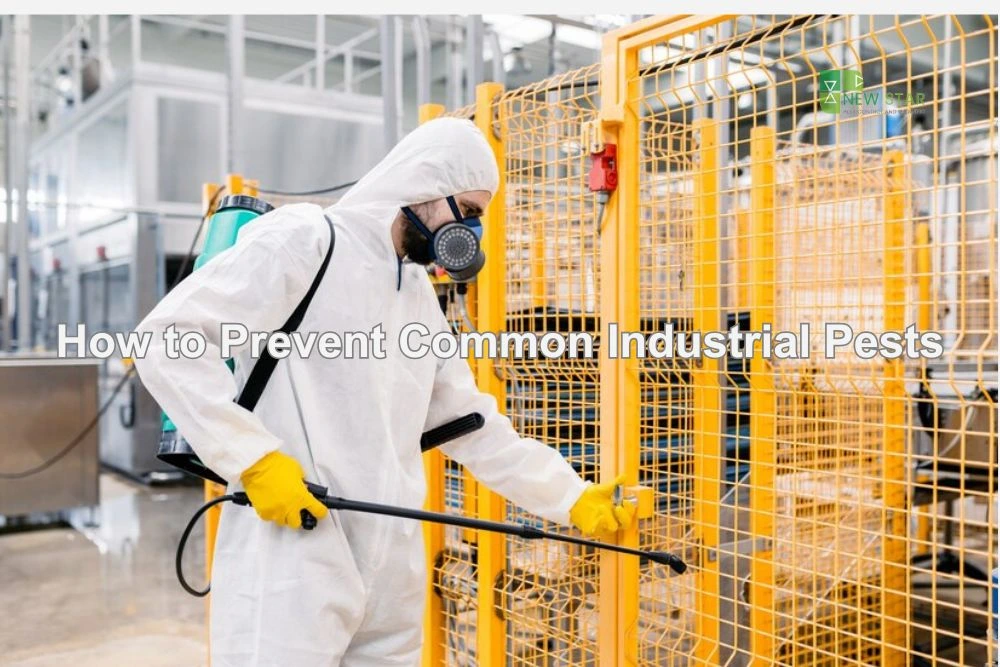Industrial facilities are ideal environments for various pests to thrive, given the size of the spaces, the presence of goods, and often warm, sheltered conditions. Pest infestations can lead to product contamination, damage to machinery, and costly regulatory fines, making it crucial for businesses to implement effective pest control strategies. This blog will explore the most common pests found in industrial settings and how to prevent them from disrupting operations. At New Star, we are providing the best industrial pest control services in Dubai, so we can surely help you prevent common industrial pests.
1. Rodents (Rats and Mice)
Rodents are among the most troublesome pests in industrial facilities, particularly warehouses and factories that store food or raw materials. They can chew through electrical wires, damage equipment, and contaminate products with their droppings, posing serious health risks.
Prevention Tips:
- Seal any cracks, gaps, or entry points in the building’s foundation.
- Implement regular waste disposal and sanitation practices.
- Store food and raw materials in tightly sealed containers.
- Use traps and monitoring devices to detect early signs of rodent activity.
- Book our rodent control services in Dubai
2. Cockroaches
Cockroaches are resilient pests that can easily find shelter in industrial environments, particularly in areas with food processing or packaging. They spread harmful bacteria and allergens, leading to health code violations and safety concerns.
Prevention Tips:
- Keep floors, drains, and surfaces clean and free from food debris.
- Eliminate sources of standing water and fix leaks immediately.
- Use insecticides in high-risk areas and set up regular pest inspections.
3. Flies
Flies, especially fruit flies and houseflies, can be a nuisance in food and beverage production facilities. They not only spread diseases but can also lay eggs in exposed products, causing contamination.
Prevention Tips:
- Install air curtains and door screens to block entry points.
- Ensure proper waste management and disposal practices.
- Keep production areas clean and use fly traps or zappers where necessary.
4. Ants
Ant infestations are common in industrial areas with food storage, as ants are drawn to spills, crumbs, and exposed food. They can quickly spread throughout the facility, contaminating goods and compromising cleanliness.
Prevention Tips:
- Ants are entering through entry points in walls, windows, and doors to the industry. So sealing the cracks and entry points is the best method to prevent ants.
- Practice regular cleaning and maintenance in areas with food or sugary products.
- Use ant baits and insecticide treatments around vulnerable areas.
5. Stored Product Pests (Beetles, Moths)
Stored product pests such as grain beetles, weevils, and pantry moths infest raw materials like grains, cereals, and flours in industrial warehouses. These pests can ruin entire batches of goods, leading to significant financial losses.
Prevention Tips:
- Inspect incoming shipments for signs of pests before storing them.
- Practice first-in, first-out (FIFO) inventory management to avoid stock aging.
- Keep storage areas dry and well-ventilated to deter moisture-loving pests.
6. Termites
Termites are a hidden threat to industrial facilities, particularly those with wooden structures or materials. They can cause extensive damage to building foundations, leading to costly repairs.
Prevention Tips:
- Schedule regular termite inspections by pest control professionals.
- Use termite-resistant materials during construction or renovations.
- Apply termite barriers or treatments to prevent infestations in vulnerable areas.
Industrial facilities face unique pest challenges that can jeopardize operations, employee safety, and compliance with health regulations. To protect your business from these threats, implementing proactive pest prevention measures is essential. At Newstar Pest Control, we specialize in customized pest management solutions for industrial facilities, ensuring your business stays pest-free and compliant with all safety standards. Contact us today for a consultation or to schedule an inspection!

